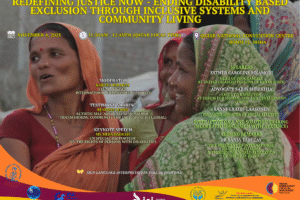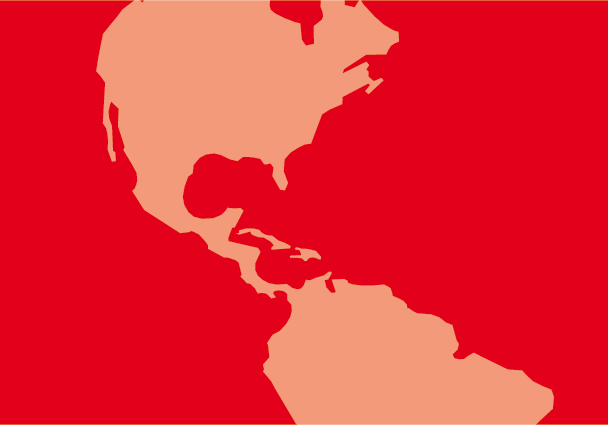
Aug 26, 2015 | Incidencia
Hoy, la CIJ y la Organización Mundial Contra la Tortura (OMCT) presentaron a un Amicus Curiae ante la Corte Constitucional de Colombia, sobre una reforma constitucional (Acto Legislativo 01 de 25 de junio 2015, “Por el cual se reforma el artículo 221 de la Constitución Política de Colombia”).
Esta reforma constitucional pretende ampliar de forma exhorbitante el ámbito de competencia de la jurisdicción penal militar y niega los principios de complementariedad entre el Derecho internacional de los Derechos Humanos y el Derecho Internacional Humanitario y de la doble protección del ser humano bajo estas dos ramas del Derecho Internacional en las situaciones de conflicto armado.
La reforma constitucional fue demandada ante la Corte Constitucional por la Comisión Colombia de Juristas, varias Organizaciones No Gubernamentales de Derechos Humanos y asociaciones de víctimas de violaciones a los derechos humanos de Colombia.
Colombia-AmicusCuriaeCIJOMCT-Advocacy-Legal submission-2015-SPA (texto íntegro en PDF)
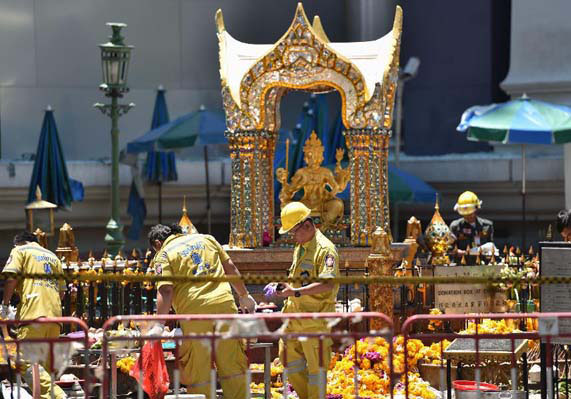
Aug 20, 2015 | News
The bombing in Bangkok that killed 20 people and injured more than 120 constitutes a serious attack on human rights and demands an impartial and effective investigation to bring the perpetrators to justice, the ICJ said today.
“Targeting ordinary people, mostly tourists visiting a religious shrine, is an assault upon our shared humanity and human rights,” said Sam Zarifi ICJ’s Regional Director for Asia and the Pacific. “Thailand must counter this vile attack with a credible investigation that aims to deliver justice to the victims by identifying the perpetrators and bringing them to justice in accordance with the rule of law.”
“The Thai authorities must also resist the pressure to display progress through hasty conclusions and commit unwaveringly to an investigation that meets international standards and respects all legal and due process guarantees. Only a credible and fair process will provide truth and justice to the many victims and survivors,” he added.
As part of an effective investigation, the ICJ recommends Thailand to:
- protect the rights of the victims including by ensuring they:
o are treated with respect,
o receive regular information about the progress of the investigation and their rights in relation to it,
o receive all necessary support and assistance;
- ensure that the investigation hypothesis is not influenced by discrimination or bias based on ethnic, religious, political or other such grounds; and
- actively seek out and accept offers of assistance from other states including in the areas of:
o intelligence,
o forensic examination of crimes scenes, bodies and vehicles,
o analysis of phone material including call data and cell sites, and
o enhancement and analysis of Closed Circuit Television (CCTV) footage.
Thailand is required to effectively investigate the attack, to prosecute and punish those responsible, and to ensure victims have access to effective remedies and reparation, as part of its international legal obligations as a Party to the International Covenant on Civil and Political Rights (ICCPR), including pursuant to the right to life and the right to security of person.
Background:
On 17 August 2015 at approximately 19:00, an Improvised Explosive Device (IED) was detonated near the popular Erawan religious shrine at the Ratchaprasong intersection in central Bangkok.
On 18 August 2015 at approximately 13:00, a second IED was detonated near Bangkok’s Sathorn boat pier that exploded harmlessly in the water.
To date, no groups or individuals have claimed responsibility for either attack.
Contact:
Sam Zarifi, ICJ Asia Regional Director, (Bangkok), t:+66 807819002, e-mail: sam.zarif(a)icj.org
Kingsley Abbott, ICJ International Legal Adviser, (Bangkok), t:+66 944701345, e-mail: kingsley.abbott(a)icj.org
Thailand-BKK Blast-News-Press releases-2015-THA (full text in pdf, THAI)
Photo: Xinhua / Li Mangmang

Aug 19, 2015 | Адвокаси, Открытые письма
Сегодня МКЮ присоединился к ряду правозащитных организаций в обращении к Генеральному прокурору Республики Казахстан по поводу недавнего дела об отказе от работы адвоката Снежанны Ким, практикующей в стране.
Инцидент произошел 24 июля 2015 года, когда адвокат Снежанна Ким встретилась с клиентом в здании следственного изолятора №. 161/1 в городе Костанай.
Подписавшие стороны обратились к Прокурору с просьбой обеспечить, чтобы Снежанна Ким и другие юристы могли свободно осуществлять свою профессиональную деятельность, в том числе путем беспрепятственного посещения клиентов, содержащихся в местах задержания под стражей, и общения с ними на основе полного уважения конфиденциальности адвоката- клиентских отношений и без какого-либо давления.
Kazakhstan-Violations Lawyer’s rights-Advocacy-Open letters-2015-RUS (полный текст на русском, PDF)
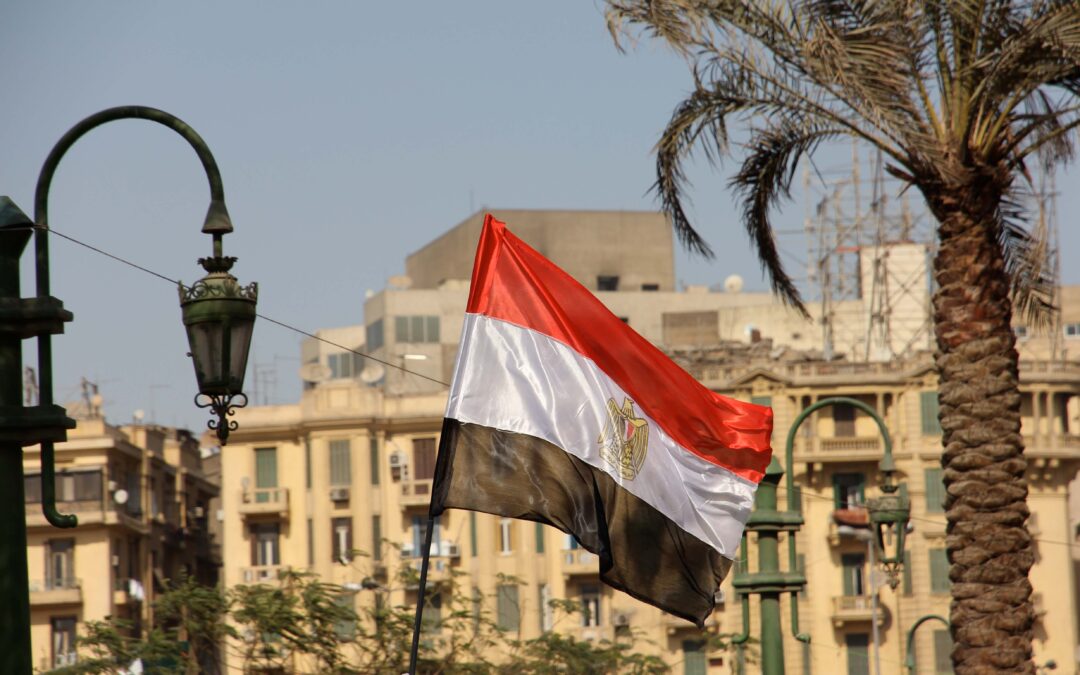
Aug 17, 2015 | News
The ICJ today condemned the promulgation of the Counter-Terrorism Law by the Egyptian President, Abdel Fattah el-Sisi, as a new, repressive move that would erode the rule of law and brush aside fundamental legal and human rights guarantees.
Calls to revise the draft Counter-Terrorism Law by the ICJ and other international and national human rights organizations and stakeholders, including Egypt’s quasi-governmental National Human Rights Council, were disregarded.
“The promulgation of the Counter-Terrorism Law by President el-Sisi expands the list of repressive laws and decrees that aim to stifle dissent and the exercise of fundamental freedoms,” said Said Benarbia, Director of the ICJ’s Middle East and North Africa Programme.
“Egypt’s authorities must ensure the law is not used as a tool of repression and, to this end, comprehensively revise it so that it fully complies with international human rights law and standards,” he added.
In a position paper published on 9 July, the ICJ detailed how the law is inconsistent with, and in numerous ways violates, Egypt’s obligations under international law, including those relating to the right to life, the right to liberty and not to be subjected to arbitrary detention, the right to privacy, and fair trial rights.
Further, the law gives state officials broad immunity from criminal responsibility for the use of force in the course of their duties, including the use of lethal force when it is not strictly necessary to protect lives, grants sweeping surveillance and detention powers to prosecutors, entrenches terrorism circuits within the court system (which have in the past frequently involved fair trial violations), and grants the President far-reaching, discretionary powers to “take the necessary measures” to maintain public security, where there is a “danger of terrorist crimes.”
Contact:
Alice Goodenough, Legal Adviser, ICJ Middle East and North Africa Programme, t: +44 7815 570 834; e: alice.goodenough(a)icj.org
Nader Diab, Associate Legal Adviser, ICJ Middle East and North Africa Programme, t: +41 229 793 804; e: nader.diab(a)icj.org
Egypt-Counter-Terrorism Law Promulgated-News-Press releases-2015-ARA (full text in pdf, ARABIC)
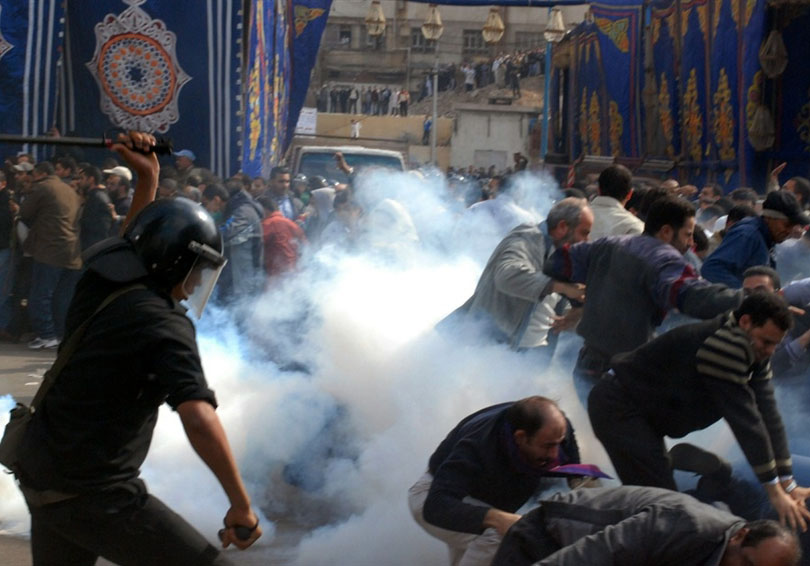
Aug 14, 2015 | News
Today, on the second anniversary of the killing by the armed and security forces of more than 1,000 individuals during the dispersal of the Rabaa’ Al-Adawyia and Al Nahda Square sit-ins, the ICJ calls on the Egyptian authorities to end its policy of impunity for serious human rights violations.
The authorities must conduct thorough, effective, independent and impartial investigations into protestor deaths with a view to holding to account all those responsible for unlawful killings and other human rights violations committed in the course of the demonstrations, the ICJ says.
“It is a measure of the total disregard for victims’ rights and the absolute impunity of the armed and security services that in the two years that have passed, no effective investigations in line with international standards have taken place and not a single person has been brought to justice for the mass killings of protestors,” said Said Benarbia, Director of the ICJ’s Middle East and North Africa Programme.
“The victims of human rights violations and their family members have been left without any effective remedies or reparation, including an acknowledgment by the Egyptian authorities of their responsibility for the hundreds of killings and injuries that day,” he added.
Although fact-finding initiatives were conducted by Egypt’s quasi-governmental National Human Rights Council and by a government-appointed commission, the ICJ considers these investigations to be deeply flawed and ineffective.
The ICJ says both had inadequate access to first hand or physical evidence from the scene, because they did not begin their work until weeks or months after the events took place; lacked the ability to compel State authorities to testify and provide evidence; failed to document the full extent of human rights violations that took place; and neither led to any form of criminal investigation, much less prosecution of those responsible for these violations.
Further, while the government-appointed commission found that over 700 people had been killed during the Rabaa’ and Nahda dispersals, the shambolic report it issued dedicated just 9 pages to these two dispersals, concluding summarily and without substantiation that the police had been justified in violently dispersing the protest and blaming primarily the organizers of the sit-ins as well as the protestors for the high death toll.
There are credible allegations that in dispersing these demonstrations the armed and security forces unlawfully resorted to excessive and disproportionate use of force, the ICJ adds.
“By turning a blind eye to gross human rights violations committed by the armed and security forces, and by shielding their members from any form of criminal accountability, the Egyptian authorities are fostering the structural impunity that prevails in Egypt instead of combatting it,” said Benarbia.
“To meet their obligations under international law, the authorities must dismantle such policies and practices and establish the truth about the sit-ins’ dispersal,” he added.
Under international law lethal force may never be used unless strictly necessary to protect life.
States are obliged to provide access to an effective remedy and reparation to victims of human right violations.
They are also required to conduct prompt, thorough and impartial investigations, with a view to holding criminally accountable persons responsible for serious human rights violations, particularly those involving a denial of the right to life.
Contact:
Alice Goodenough, Legal Adviser of the ICJ Middle East and North Africa Programme, t: +44 7815 570 834; e: alice.goodenough(a)icj.org
Nader Diab, Associate Legal Adviser of the ICJ Middle East and North Africa Programme, t: +41 229 793 804; e: nader.diab(a)icj.org
Egypt-Impunity Rabaa Sq-News-Press releases-2015-ARA (full text in pdf, ARABIC)







